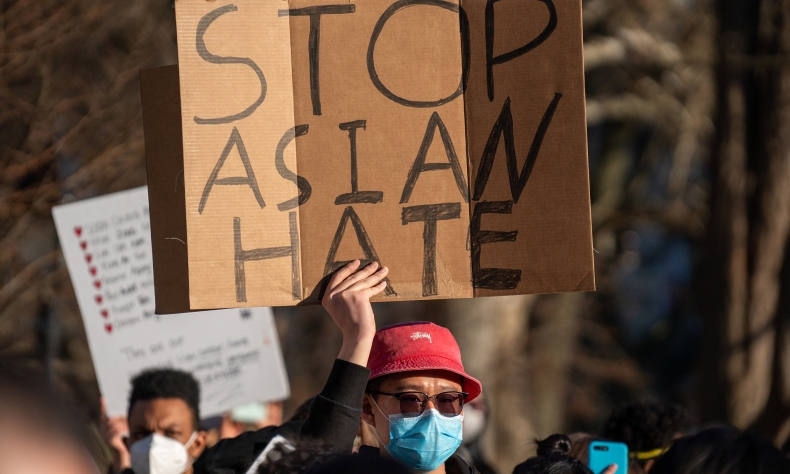The Racial Impact of US China Policies

The United States must come to terms with the human consequences of its actions that have inflamed anti-Asian racism in the pursuit of antagonism towards China.
Last week, the world was shocked by a mass shooting which took place in Atlanta, Georgia, which primarily targeted Asian people. The shooter, now in custody, killed eight people, six of whom were Asian, sparking concern about a record surge in anti-Asian hate crimes across the United States.
The rise in racism has been directly linked to the policies of former U.S. President Donald Trump, who scapegoated China for the COVID-19 pandemic and repeatedly brandished the terms “China virus” and “Kung Flu.” He weaponized a political blame game in order to deflect attention away from his poor handling of the situation, as well as to provide cover for a more hostile foreign policy direction towards China.
This tragedy reveals the bitter and shameful consequences of such decision making. Some have claimed that China is attempting to “politicize” these hate-crimes in a bid to defend its policies, yet this distracts from the broader truth that actions indeed have consequences, and that the previous administration turned America into a treacherous place for people of Asian descent. This was not just done through blaming the COVID-19 pandemic on Asian people, but also through inciting grand-scale paranoia, suspicion of Chinese people in general and the framing of the country as a political adversary. This is the end result, and it must be confronted rather than denied.
The berating of Chinese students as technology thieves, infiltrators and spies was a common theme of the Trump administration as well as its prominent supporters such as Senator Tom Cotton, and it began before last year too. It was just one of many areas in which the administration incited a society wide hatred of Chinese people and utilized McCarthyism in pursuit of its foreign policy goals. What was being said was objectively false and unfair, yet the fear it incited was real.
The former U.S. administration repeatedly blamed China for many things. China was scapegoated for the decline of American jobs and industry, the decline in America’s standing in the world and the failures of America’s past leaders. This was not just a benign set of grievances with China’s government, it was an assault on the country as a whole, which was only amplified with COVID-19, wherein racist and xenophobic sentiment was whipped up to attack China on cultural and ideological grounds. Talk was widespread as to how Beijing ought to be “held accountable” and “pay” for the mass death toll it had apparently inflicted upon the United States. Even now after leaving office, Trump and Pompeo are still pushing this narrative.
In this case, the rise in Asian hate crimes across the country is not a coincidence; it is directly affiliated with the all-embracing climate of hatred and fear created by this administration, for political purposes. Those who are refusing to accept this, or trying to dismiss it as propaganda, are intellectually dishonest. Their goal is to project the anti-China narrative more so than anything else, regardless of the fact that this has produced a climate of racism and paranoia. Foreign policies, especially those of a nationalist nature, have real human consequences and especially when it involves the projection of grievances onto another group.
Therefore, the United States must come to terms with the human consequences of its actions that have inflamed anti-Asian racism in the pursuit of antagonism towards China.
The Biden administration is not as abrasive or reckless when it comes to race relations, and has sought to offer solidarity to the affected groups in Atlanta, but one must ask what will fundamentally change?
Hostility towards China is not going to go away, and the same political figures responsible continue call for it even now. America’s vaccine drive and economic recovery will soften social tensions, but this does not scratch the surface of the broader problem. All it takes is another geopolitical disruption for U.S. politicians to whip up deflection and blame games against China. As unrealistic as the possibility may be, it’s time the U.S. steps back and takes a hard look at itself.
 Facebook
Facebook
 Twitter
Twitter
 Linkedin
Linkedin
 Google +
Google +







